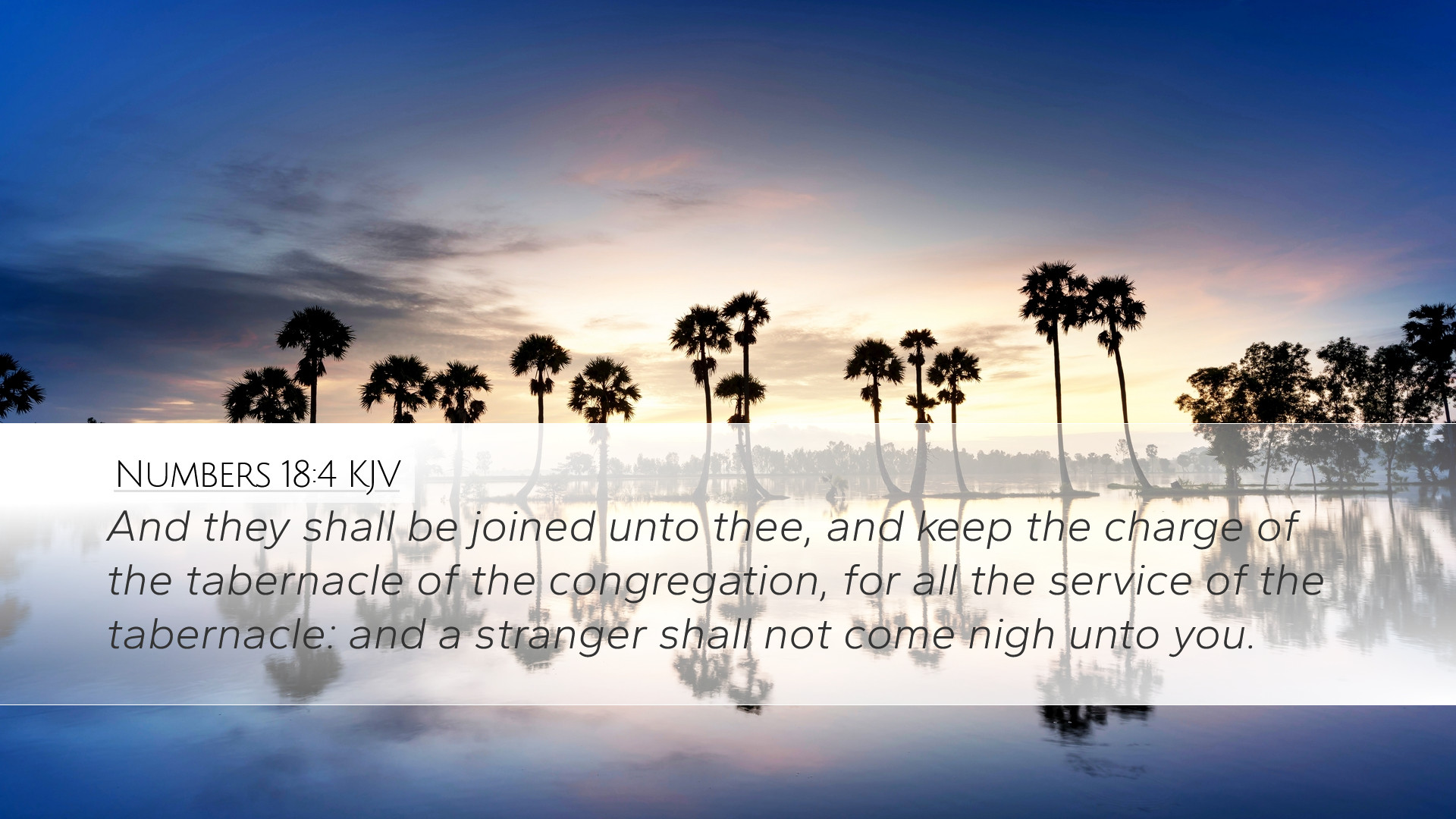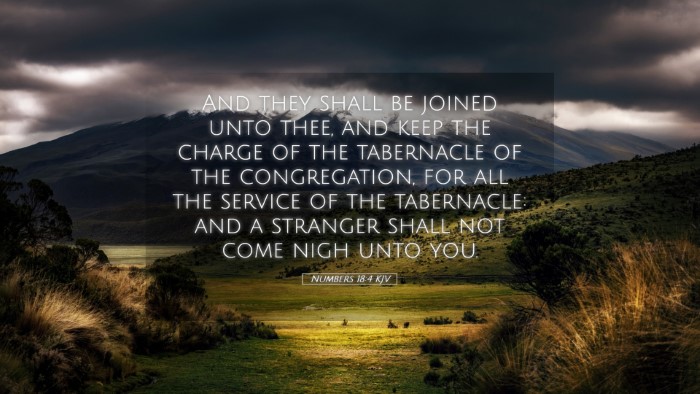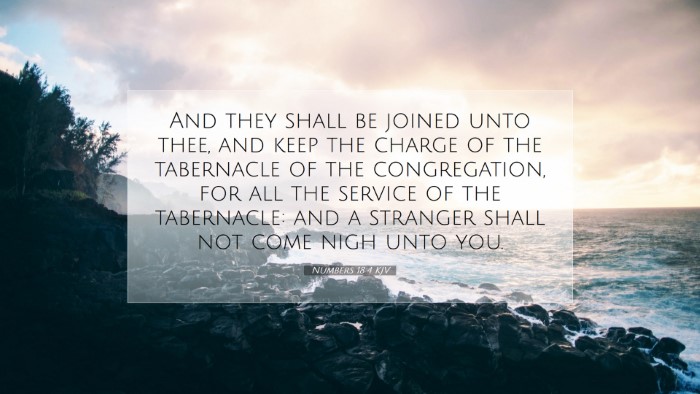Commentary on Numbers 18:4
Introduction
Numbers 18:4 states: "And they shall be joined unto thee, and keep the charge of the tabernacle of the congregation, for all the service of the tabernacle: and a stranger shall not come nigh unto you." This verse speaks to the roles and responsibilities of the Levites, who were set apart for the service of God’s sanctuary. In this commentary, we will explore the significance of this verse, synthesizing insights from notable public domain commentaries by Matthew Henry, Albert Barnes, and Adam Clarke.
Contextual Background
The Book of Numbers is part of the Torah, detailing the Israelites' wilderness wanderings. By the time of chapter 18, God had established the Levitical priesthood to manage the responsibilities associated with the tabernacle. This chapter emphasizes the duties of the Levites and the importance of their role within the Israelite community.
Exegesis of Numbers 18:4
The phrase "they shall be joined unto thee" signifies a divinely ordained partnership between Moses and the Levites. Matthew Henry comments on this union, indicating that the Levites were to assist the priests, showcasing a profound sense of collaboration in spiritual duties.
-
Service of the Tabernacle
Henry elaborates that the Levites' service required dedication and commitment to the tasks at hand. This service was not merely functional but spiritually significant, reflecting the holiness of their calling.
-
Charge of the Tabernacle
Albert Barnes underscores that "keeping charge" indicates a protective role. The Levites were not only caretakers of the physical aspects of the tabernacle but spiritual guardians of God’s holiness among His people.
-
Exclusivity of the Priestly Role
Adam Clarke points out the latter part of the verse, which stresses that "a stranger shall not come nigh unto you." This implies that God strictly demarcates who may approach His presence, signifying the sanctity of the office of the Levites.
Theological Implications
This verse not only establishes the role of the Levites but also reflects broader theological themes:
-
The Holiness of God
Clarke emphasizes that proximity to God comes with significant responsibility and purity. The notion that a stranger cannot draw near serves as a reminder of God’s transcendent holiness.
-
The Role of Levites as Intercessors
Henry reflects on the mediation role of the Levites, foreshadowing the ultimate mediation of Christ. Just as the Levites mediated between God and the people, Christ serves as our eternal mediator.
-
Community Responsibility
The Levites' role implies communal holiness and support. Barnes notes that all members of the community had a part in supporting their religious leaders, fostering a spirit of cooperation and mutual dependence.
Practical Applications
Considering the insights from these commentaries, several key applications for modern readers emerge:
-
Understanding Our Roles
Just as the Levites had distinct roles, understanding our gifts and positions within the church is crucial for communal harmony and effective ministry.
-
Emphasizing Holiness
The call to holiness remains relevant. Individuals and congregations alike must consider their approach to God, acknowledging the sanctity required in worship and service.
-
Supporting Spiritual Leadership
Maintaining a supportive atmosphere for spiritual leaders is vital. Both prayer and active participation in the community life reflect the principles set forth in Numbers 18:4.
Conclusion
Numbers 18:4 provides rich insight into the responsibilities entrusted to the Levites and the overarching themes of holiness, community, and divine order. The commentaries from Matthew Henry, Albert Barnes, and Adam Clarke illuminate these themes, making this verse a profound point of reflection for pastors, students, theologians, and scholars.


